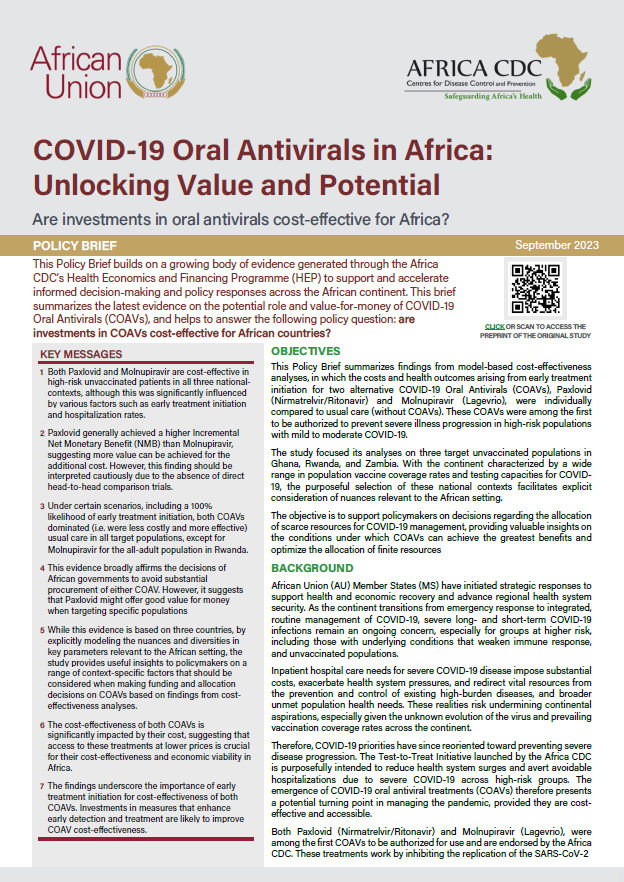POLICY BRIEF
This Policy Brief builds on a growing body of evidence generated through the Africa CDC’s Health Economics and Financing Programme (HEP) to support and accelerate informed decision-making and policy responses across the African continent. This brief summarizes the latest evidence on the potential role and value-for-money of COVID-19 Oral Antivirals (COAVs), and helps to answer the following policy question: are investments in COAVs cost-effective for African countries?
OBJECTIVES
This Policy Brief summarizes findings from model-based cost-effectiveness analyses, in which the costs and health outcomes arising from early treatment initiation for two alternative COVID-19 Oral Antivirals (COAVs), Paxlovid (Nirmatrelvir/Ritonavir) and Molnupiravir (Lagevrio), were individually compared to usual care (without COAVs). These COAVs were among the first to be authorized to prevent severe illness progression in high-risk populations with mild to moderate COVID-19.
The study focused its analyses on three target unvaccinated populations in Ghana, Rwanda, and Zambia. With the continent characterized by a wide range in population vaccine coverage rates and testing capacities for COVID-19, the purposeful selection of these national contexts facilitates explicit consideration of nuances relevant to the African setting.
The objective is to support policymakers on decisions regarding the allocation of scarce resources for COVID-19 management, providing valuable insights on the conditions under which COAVs can achieve the greatest benefits and optimize the allocation of finite resources
